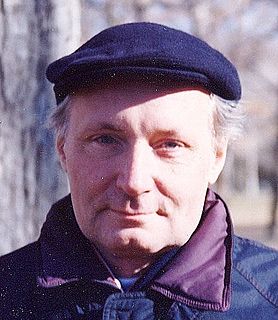A Quote by William A. Dembski
The question rather is how we should do science and theology in light of the impending collapse of Enlightenment rationalism and scientific naturalism. These ideologies are on the way out. They are on the way out.
Related Quotes
Theology differs from science in many respects, because of its different subject matter, a personal God who cannot be put to the test in the way that the impersonal physical world can be subjected to experimental enquiry. Yet science and theology have this in common, that each can be, and should be defended as being investigations of what is, the search for increasing verisimilitude in our understanding of reality.
"Methodological naturalism" and "metaphysical naturalism" are terms that often surface in the continuing battle between evolutionary biology and creationism/intelligent design. The methodological thesis says that scientific theories shouldn't postulate supernatural entities; the metaphysical thesis says that no such entities exist. In this debate, God is the supernatural entity at issue; the question isn't whether science gets to talk about mathematical entities if Platonism is correct.
It would be impossible to accept naturalism itself if we really and consistently believed naturalism. For naturalism is a system of thought. But for naturalism all thoughts are mere events with irrational causes. It is, to me at any rate, impossible to regard the thoughts which make up naturalism in that way and, at the same time, regard them as a real insight into external reality...If it is true, then we can know no truths. It cuts its own throat.
You see, my Lord Archbishop, what is "dubious" about my theology is not that it contradicts particular doctrinal teachings, things are much worse or better: what I want, is no more and no less than a fundamental change in the whole way that theology is done today; but I want this out of faith, not out of faithlessness.
Sarcastic Science, she would like to know,
In her complacent ministry of fear,
How we propose to get away from here
When she has made things so we have to go
Or be wiped out. Will she be asked to show
Us how by rocket we may hope to steer
To some star off there, say, a half light-year
Through temperature of absolute zero?
Why wait for Science to supply the how
When any amateur can tell it now?
The way to go away should be the same
As fifty million years ago we came-
If anyone remembers how that was
I have a theory, but it hardly does.
It's for scientists to lay out the data and lay out what they think, and then it's for the public to make up its own mind. We don't live in a priesthood where some small group imposes its views on other people - that's not the way that science works, and it's not the way a democratic society should work.
Science is a way of getting knowledge. It's a method. It's a method that really relies on making mistakes. We propose ideas, they are usually wrong, and we test them against the data. Scientists do this in a formal way. It's a way that everyone can go through life; that's how we should be teaching science from a very young age.
You boys know what tropism is, it's what makes a plant grow toward the light. Everything aspires to the light. You don't have to chase down a fly to get rid of it - you just darken the room, leave a crack of light in a window, and out he goes. Works every time. We all have that instinct, that aspiration. Science can't dim that. All science can do is turn out the false lights so the true light can get us home.









































